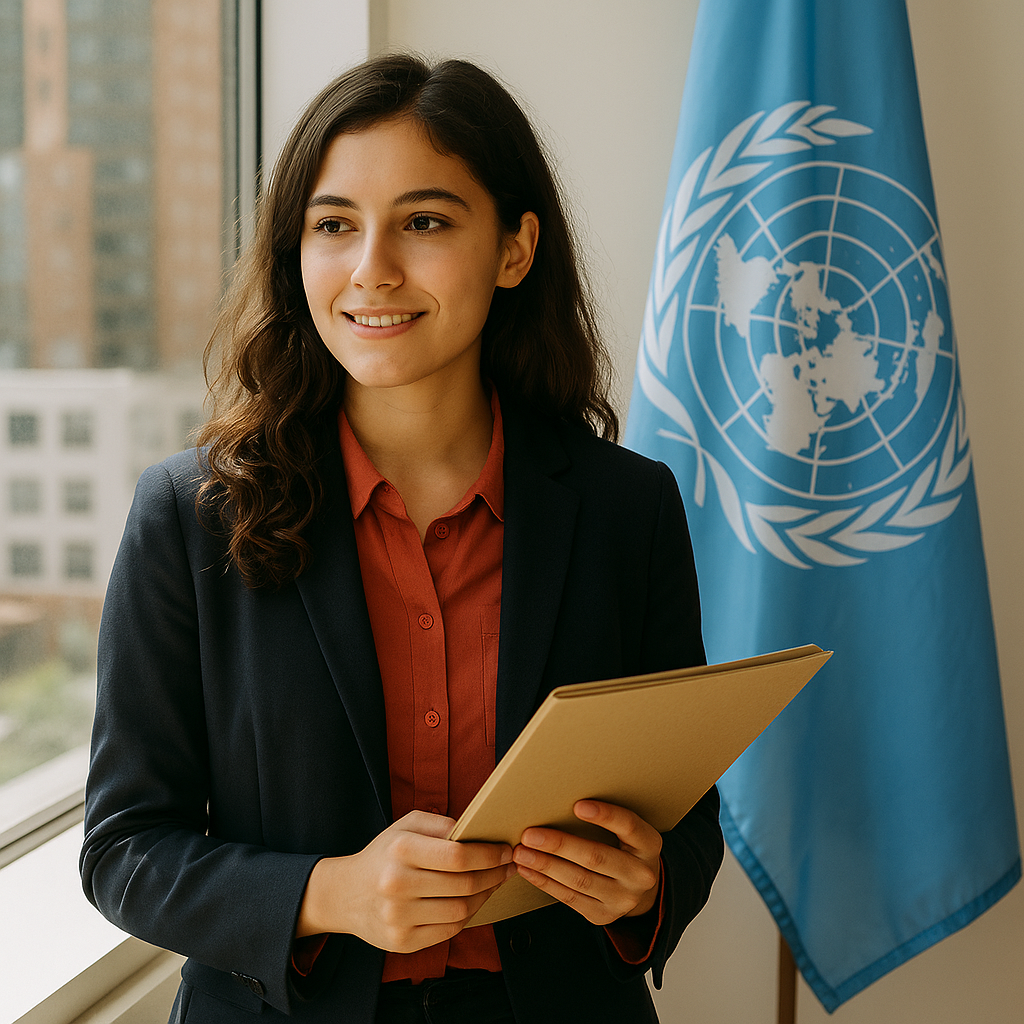Your journey to a United Nations career: A story of passion and purpose
How to start a career with the UN: qualifications, experience, and essential tips
Luciana always dreamed of working for the United Nations. Ever since her high school days, she imagined herself at the heart of global efforts to end poverty, protect the environment, and promote peace. But as she scrolled through job listings and read the requirements, the path seemed overwhelming — advanced degrees, language fluency, field experience. Where would she even begin?
Luciana’s story isn’t unique. Every year, thousands of bright, motivated individuals wonder how to turn their passion for international affairs into a meaningful UN career. The good news? With the right preparation and mindset, that dream is within reach.
Education: building the foundation
Luciana started by choosing her university degree carefully. She knew that most UN positions required at least a bachelor’s degree — but she noticed that many roles preferred a master’s degree, especially those with policy or leadership responsibilities. Her interest in human rights led her to study political science, but she also considered fields like international relations, economics, and environmental studies — each offering pathways into different UN agencies.
She soon learned that specialized degrees mattered too: engineers, doctors, lawyers, and data scientists all had their place in the UN’s vast family of agencies. For instance, the World Health Organization valued public health specialists, while the UN Environment Programme sought environmental scientists and climate experts.
Language skills: opening doors
Luciana always loved languages. Growing up, she spoke English fluently, but she decided to take French classes in college after learning it was one of the UN’s official working languages. She soon discovered that proficiency in a second UN language — Arabic, Chinese, Russian, or Spanish — often opened doors to field missions and specialized roles. Language, she realized, wasn’t just a plus; it was a key that unlocked opportunities.
Experience: more than just a degree
Degrees and language skills were essential, but Luciana knew she needed practical experience too. She interned with a local NGO supporting refugees, and that hands-on work — writing reports, coordinating with partners, and assisting vulnerable communities — gave her invaluable skills. She later volunteered with a youth development program abroad, gaining firsthand knowledge of the challenges faced by communities in crisis.
When she applied for a UN Volunteer assignment, Maria’s résumé glowed with real-world experience — proof that she was committed to making a difference.
Finding the entry point
Luciana had heard of the Young Professionals Programme (YPP), a competitive exam for candidates under 32. She knew the odds were tough, but she also knew that if she prepared well, it could be her golden ticket. Alternatively, she explored the Junior Professional Officer (JPO) program, which allowed young professionals — often sponsored by their own governments — to get two years of experience in a UN agency.
And then there were internships. Though often unpaid, they provided an inside view of the UN’s work. Luciana landed a three-month internship in Geneva, and she used that time to network, attend side events, and polish her application skills.
Crafting the application: telling her story
Luciana realized that each UN application needed to be tailored — no generic cover letters allowed. She learned to showcase her achievements and explain how her experience aligned with the specific role’s competencies. She practiced answering questions that assessed skills like teamwork, communication, and adaptability — core UN values that every applicant had to demonstrate.
Luciana’s lesson: stay persistent and passionate
Luciana’s journey wasn’t always smooth. She faced rejections and delays. But each step — from learning a new language to volunteering in challenging conditions — built her resilience and expanded her understanding of what it meant to serve on the global stage.
In the end, Luciana’s persistence paid off. She landed a position with the UN Development Programme, helping communities recover from crises and build sustainable futures.
Her story reminds us that working for the UN isn’t just about ticking boxes. It’s about a commitment to global service, a willingness to learn, and a determination to use your skills for the greater good.
So, if you’re dreaming of a UN career, start building your foundation now. Choose your studies with care, embrace language learning, seek meaningful field experiences, and craft every application to tell your unique story. The world is waiting for passionate professionals like you — ready to make a difference.

